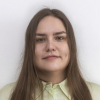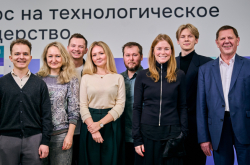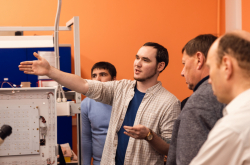This year, the open call is held in three tracks: New Frontier Laboratories With a Broad Focus, New Frontier Laboratories for AI in Science, and AI in Education.
The first track, New Frontier Laboratories With a Broad Focus, is meant for teams ready to work on breakthrough research. There are no limits on project topics, but they have to fall into the global scientific frontier. Another important condition is that the application has to be supported by a researcher from the organization that will be the project’s strategic partner. The organizers recommend reaching out to the world’s leading research centers. Winners in this track will receive up to 10 million rubles in funding in the first year of the laboratory’s operation.
“In their application, participants need to demonstrate their experience of working on the scientific frontier. The committee will evaluate the concrete experiences of each member of the team and its leader in particular: the major projects they implemented in leading research areas and the measurable results they produced. Although team members may have experience and results in their project’s area, we expect them to focus on producing novel high-impact breakthrough results,” says Alexey Slobozhanyuk, the track’s scientific consultant.

Alexey Slobozhanyuk. Photo by ITMO.NEWS
As for the second track, New Frontier Laboratories in AI, it is also open to research teams with ideas for interdisciplinary solutions in AI for specific fields – physics, chemistry, biology, and others. There are no limits on the topics, however, it would be beneficial to secure a partnership with a representative of a leading tech company. In this track, winners can expect to receive up to 20 million in funding in their first year.
“Submissions have to be interdisciplinary research projects with two parts: AI and new solutions in specific subject fields. Importantly, these parts have to both benefit from their synergy and the interdisciplinary approach. The committee needs to see how AI can be of use in developing a solution in, say, physics, and in which particular tasks, how it helps in research, and what added value it brings,” adds Alexey Slobozhanyuk.

Project defences within Priority 2030 Development Strategy. Photo by Dmitry Grigoryev / ITMO.NEWS
The track AI in Education accepts applications for projects aimed at forming an environment for a conscious and responsible use of AI services. The projects have to focus on one of the three objectives: educational, transformational, or managerial.
“The educational objective implies looking for solutions in terms of developing a culture for using AI by all participants of the academic process and raising the academic community’s awareness of the opportunities, limitations, and risks associated with using AI. As for the second objective, it’s focused on transforming the educational process in the new realities, with AI entering the communication between lecturers and students. Finally, the third objective is meant to welcome projects on managing the educational process with the algorithms for collecting and processing big data with AI. Participants can suggest both new AI products and models for using or implementing existing ones,” comments Olga Eliseeva, the coordinator of the strategic project Highly Personalized Value-Based Education and deputy head of the Department of Academic Affairs.

Olga Eliseeva. Photo by Maria Bakina / Megabyte Media
In the open call’s project documentation related to the third track, participants can find the list of tasks to be tackled within each of the three objectives. The participants have the opportunity to join the Development Strategy with a solution for one of these tasks or their combination – or suggest their own project. The organizers of the track AI in Education also welcome fully student teams; the team’s leader has to be an employee of the university.
The open call will be held in three stages. Applications are accepted from September 16 to October 9. They will then be checked for meeting the competition’s criteria by experts from ITMO and other leading organizations in research, education, or technology. On November 14-15, the authors of the selected projects will defend their ideas at a session of the Coordination Council – then, the winners will be announced. Importantly, participants are allowed to be engaged in no more than two projects at a time.
The first year of projects submitted within the tracks New Frontier Laboratories With a Broad Focus and New Frontier Laboratories for AI in Science will be fully funded by ITMO; next, the teams are expected to find co-funding options. The pitched ideas have to be implemented within three years. Twice a year, the participants will present reports on their performance that will be used to determine whether their funding will be continued or cut off. The exact amount of funding will depend on the project and primarily on the results promised by the participants.
All information about the open call is available on the official website (page in Russian) of the 2030 Development Strategy.





